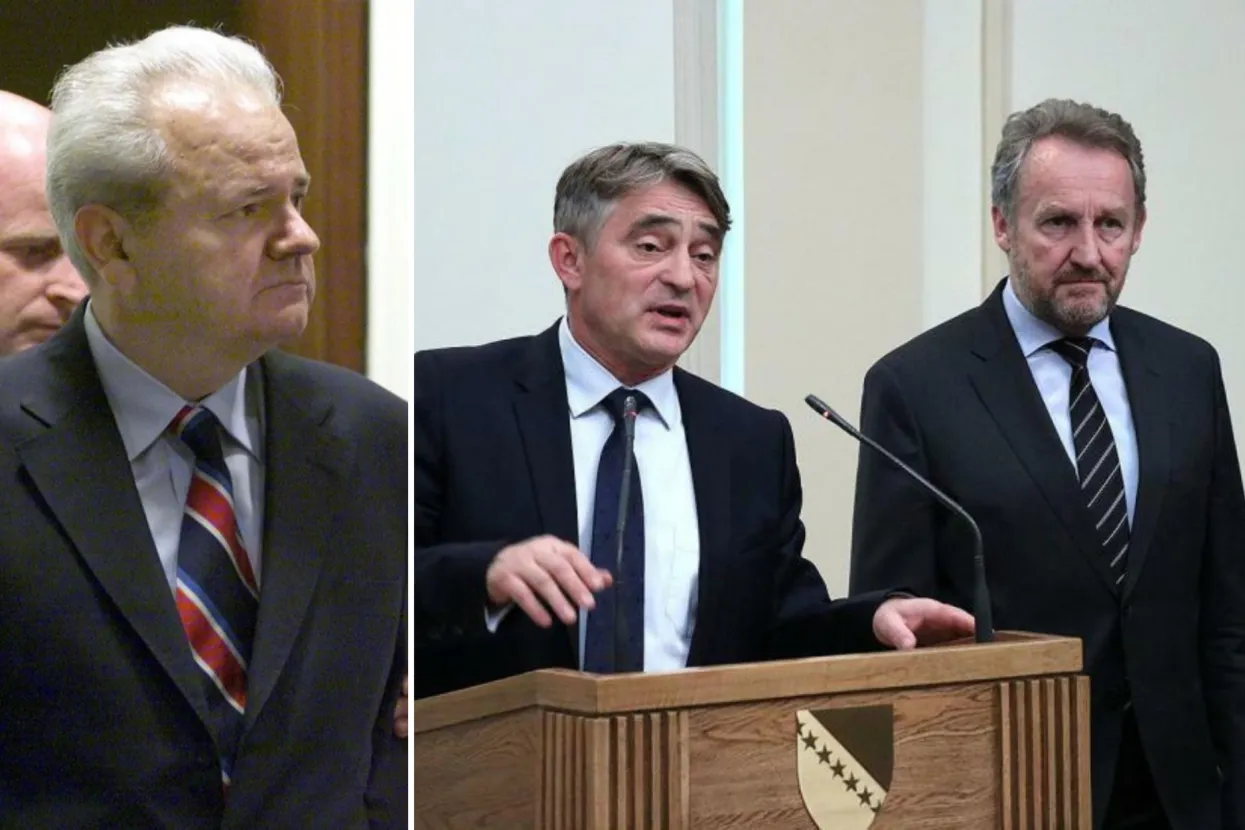
Slobodan Milošević, Željko Komšić and Bakir Izetbegović
If the international community didn't stop Milosevic, they must stop political Sarajevo
At the dawn of the violent breakup of Yugoslavia, which was preceded by the attempts to reform the federal Constitution, but also the way of decision-making within the SKJ (League of Communists of Yugoslavia) party structure, political Belgrade tried to strengthen its position in the federal institutions by imposing political representatives first in the Autonomous Province of Kosovo, and then in Vojvodina.
Written by Zoran Krešić/ Večernji list BiH
The case of Sejdo Bajramović, who was installed by Slobodan Milošević in Kosovo after Riza Sapunxhiu refused to support the introduction of a state of emergency in the BiH Presidency, is well known. However, the 'legal' military coup of the JNA failed since the Bosnian Serb, Bogić Bogićević, opposed it. In October 1998, in Vojvodina, Milošević organized a violent change of government in the so-called 'yoghurt revolution' by bringing tens of thousands of protesters from Serbia and Kosovo to Novi Sad. In the end, they succeeded.
A very dramatic session of the Congress of the League of Communists of Yugoslavia was held in January 1990. At that time, all amendments from Croatia and Slovenia were rejected, which insisted on equality and preventing the introduction of the one-voter-one-vote system, i.e. the dominance of the Serbian side. Serbian representatives and their satellites outvoted other national delegations that left Congress. The last attempt, literally before the bloody disintegration of Yugoslavia, was Croatia's proposal to reorganize Yugoslavia into a confederation, which political Belgrade also refused. The epilogue and consequences are known to everyone!
Thirty years later, political Sarajevo imposes political representatives on Croats. Željko Komšić, whom the Croats call Sejdo Bajramović, was imposed on the Croats on three occasions by the votes of the Bosniaks. In the House of Peoples of the Federation of Bosnia and Herzegovina, Bosniak parties elect Croatian representatives and delegates to the upper, nationally conceived House of Peoples. (Edim Fejzić from Goražde and Anel Šahinović from Velika Kladuša, who after his death was suceddeed by Razim Halkić). Just like political Belgrade in Yugoslavia. Attempts to change the electoral system in accordance with the verdict of the Constitutional Court of Bosnia and Herzegovina following the appeal of Božo Ljubić, which insists on legitimate political representation (mentioned 12 times in the verdict), and to prevent the outvoting of the less numerous constituent nations, are met with threats of violence, conflicts and war. Just like during the breakup of Yugoslavia.
The new 'yoghurt revolution' organized in Sarajevo by SDA (Party of Democratic Action) youth and DF (The Democratic Front) activists is also reminiscent of the same scenarios from the late 1980s. The international community in BiH has an immense responsibility for its survival, peace and stability. So far, primarily from the USA and the EU, there have been invested billions of dollars and engaged thousands of soldiers, peacekeepers and mediators to make BiH stable, advanced and successful. In contrast to the 90s, when it did not stop political Belgrade from realizing grand nationalist plans and hegemony, today the international community must show determination and prevent political Sarajevo from causing crisis and instability.